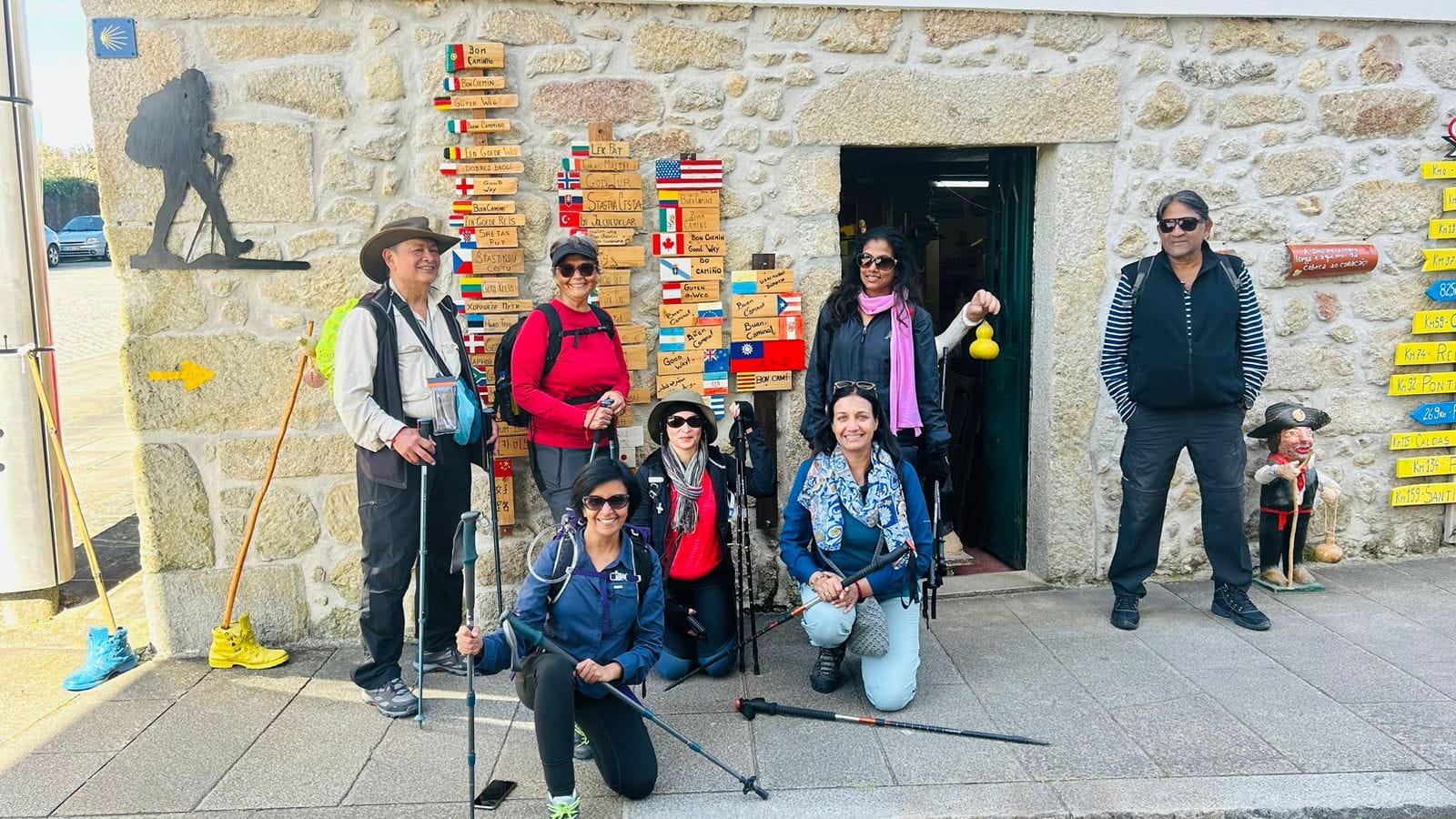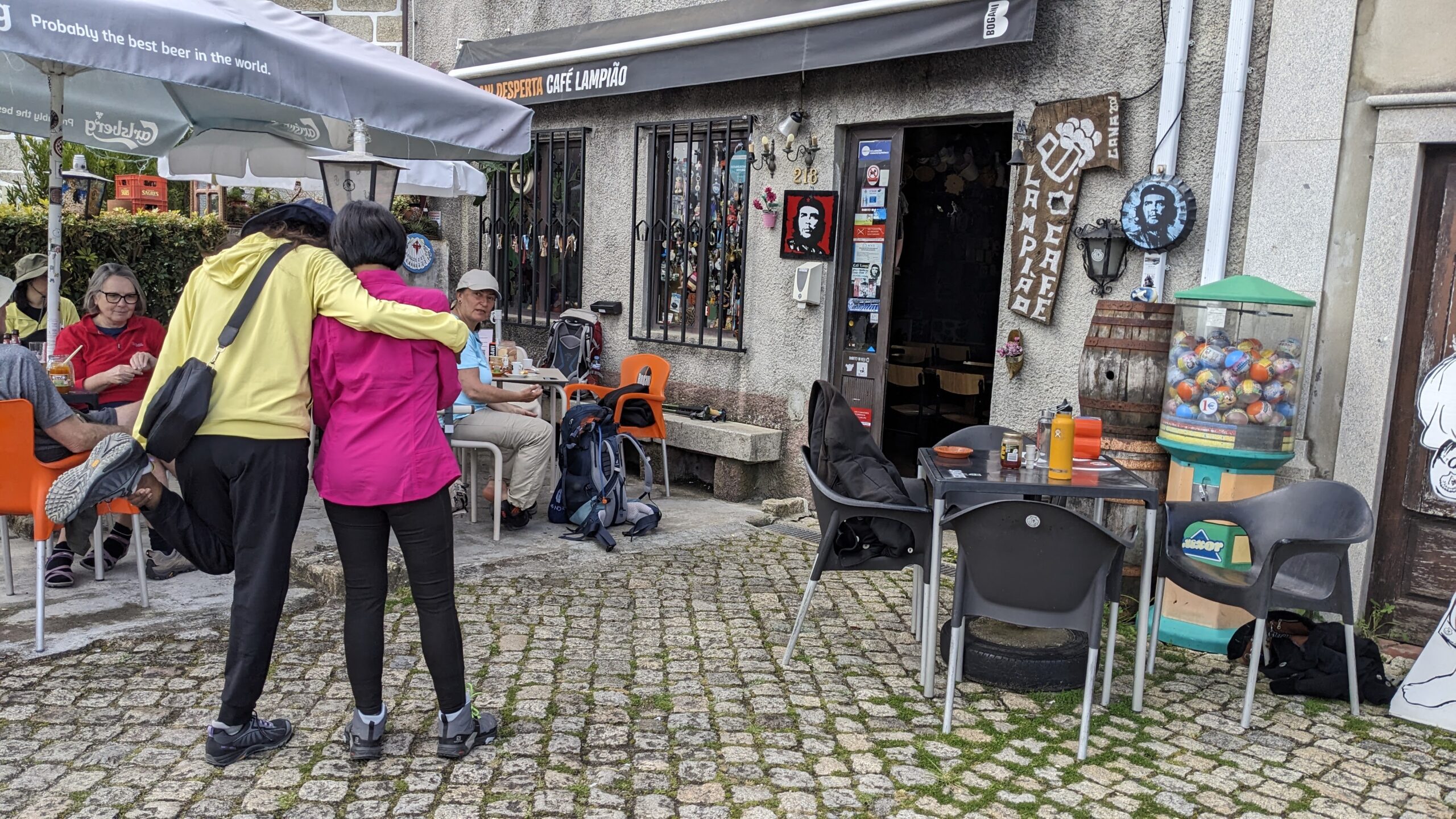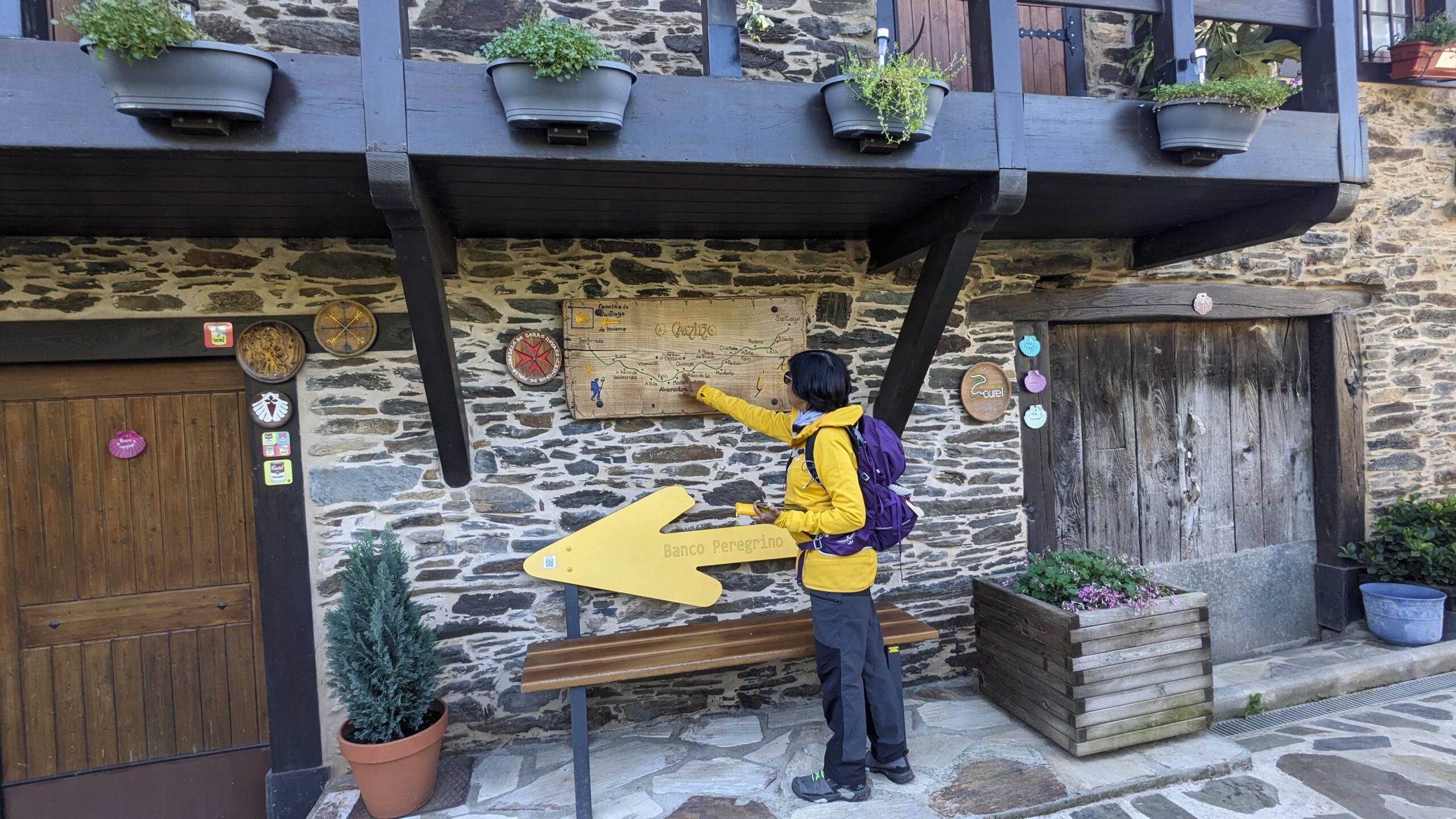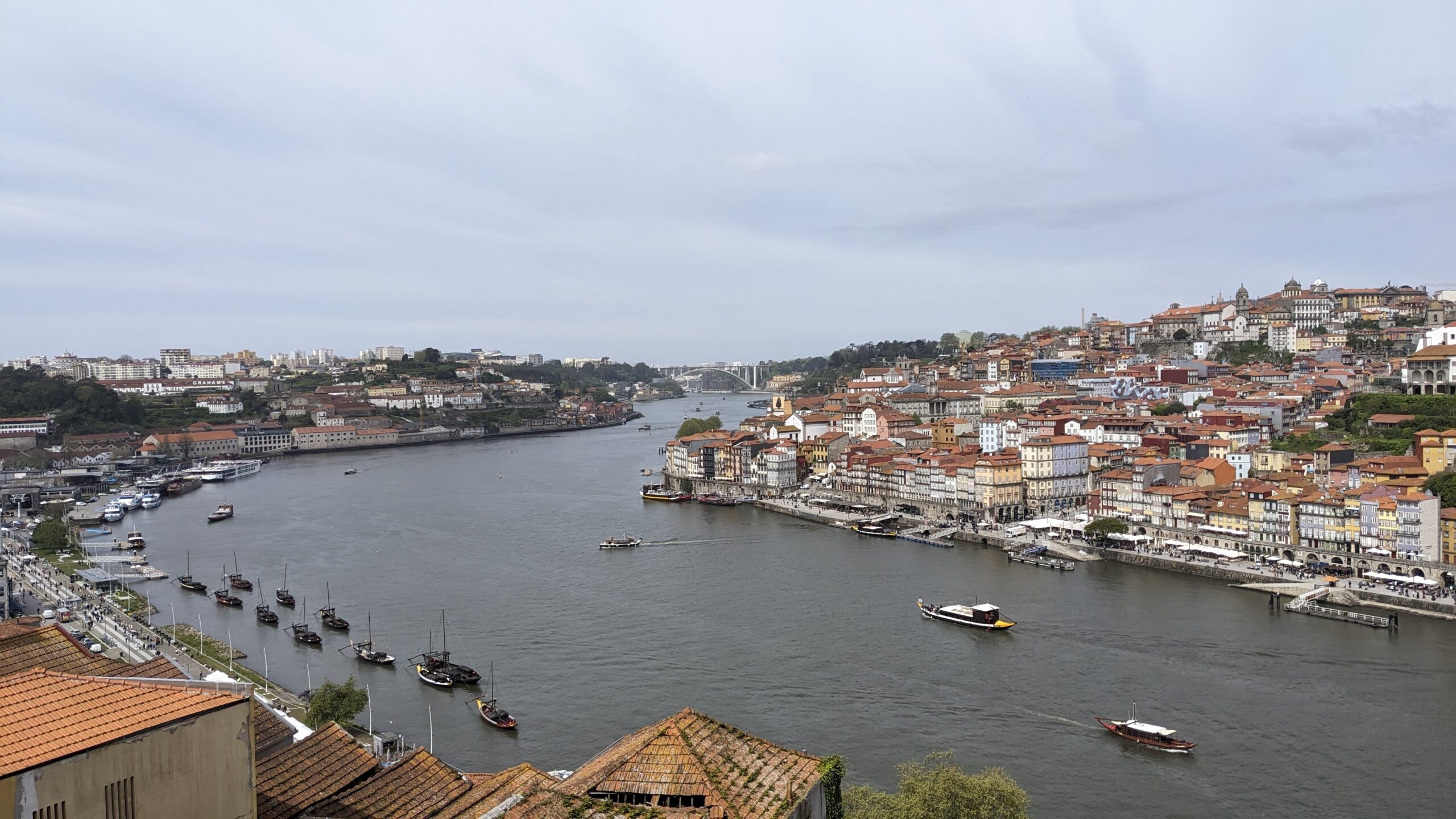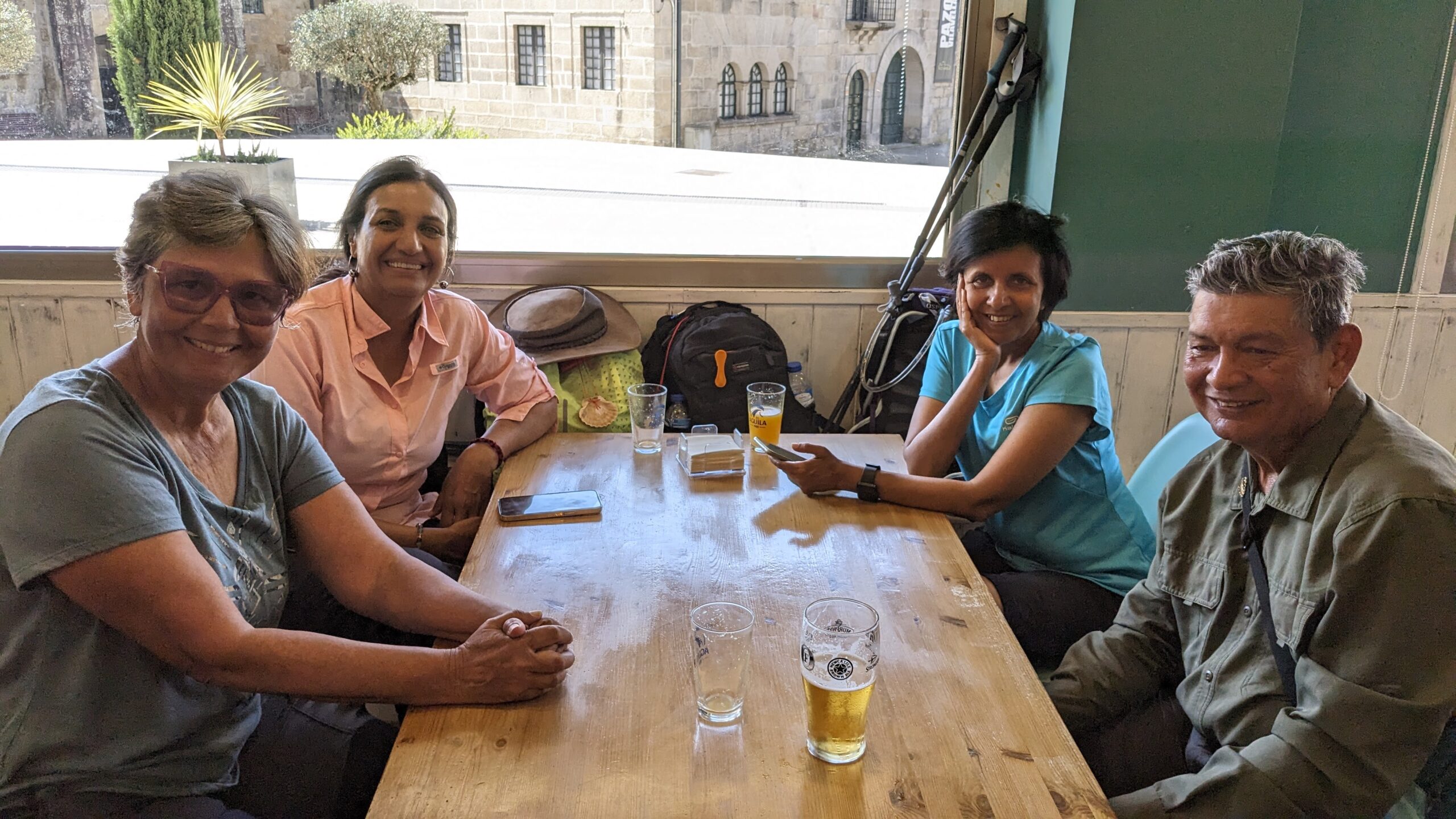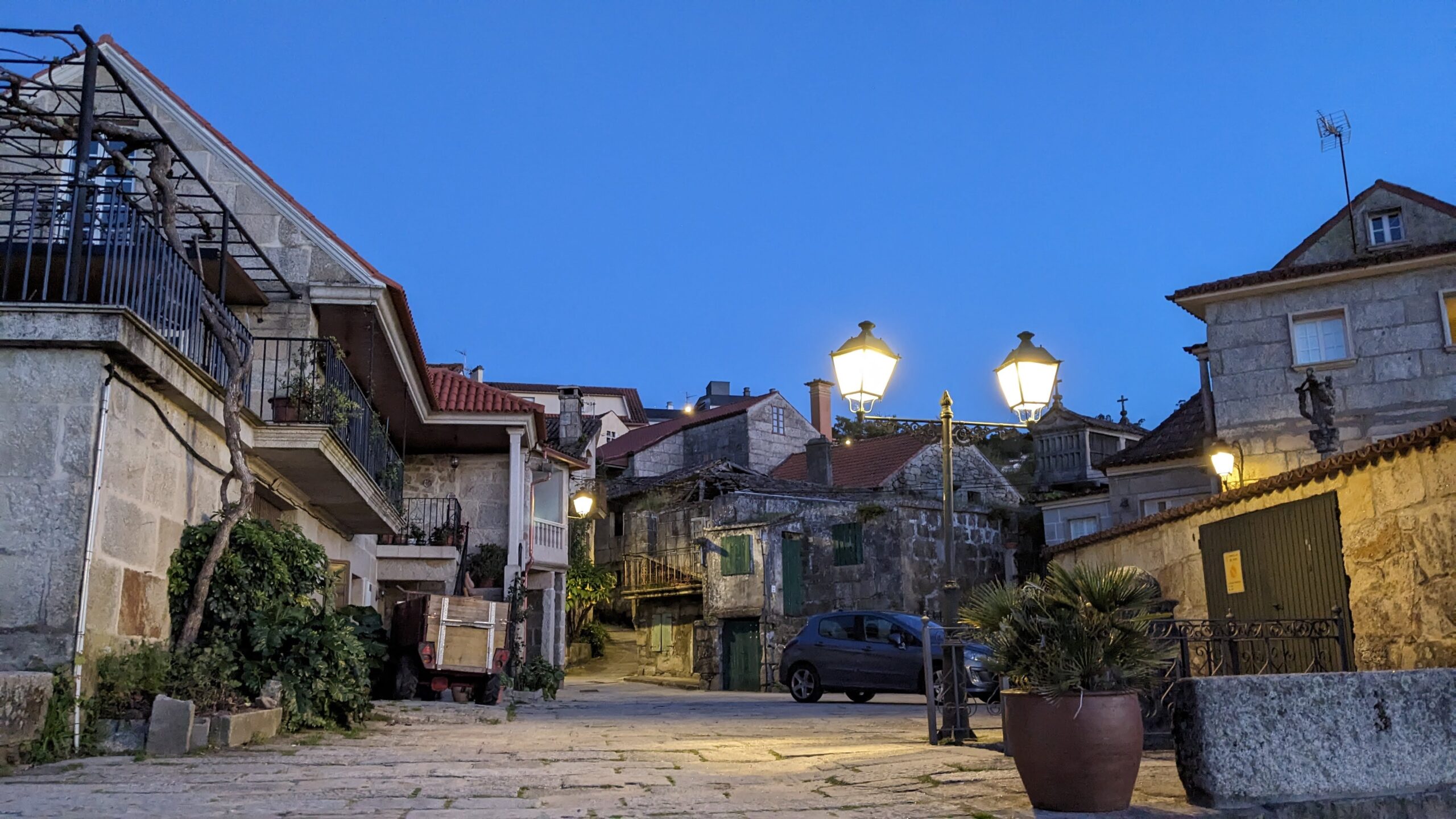Essential Portuguese for Pilgrims
Walking the Camino Portuguese can be an extraordinary experience that transcends language barriers. However, a tiny bit of Portuguese will enhance your pilgrimage. Imagine confidently greeting fellow pilgrims, ordering a delectable meal, or asking for directions with a smile. Imagine confidently greeting fellow pilgrims, ordering a delectable Pastel de Nata (Portugal’s iconic egg custard tart), or asking for directions to the nearest Albergue (pilgrim hostel) with a smile.
Here are some key phrases to navigate your way.
Greetings
A simple greeting shows that you appreciate their country and culture:
- Olá (Oh-lah): This versatile greeting is perfect for any time of day in informal situations. A friendly “Olá” to a shopkeeper or fellow pilgrim acknowledges their presence and opens the door for conversation.
- Bom dia (Bon dee-ah): For a more formal greeting in the morning hours, “Bom dia” conveys your courtesy and respect.
- Boa tarde (Boh-ah tahr-deh): As the sun climbs higher, switch to “Boa tarde” for a good afternoon.
- Boa noite (Boh-ah nwee-teh): As dusk settles, greet your fellow pilgrims or guesthouse host with a warm “Boa noite.”
- Obrigada (Oh-bree-gah-dah) [feminine] or Obrigado (Oh-bree-gah-doo) [masculine]: Expressing gratitude is essential. Remember to use “Obrigada” if you are female and “Obrigado” if you are male.
- De nada (Deh nah-dah): You’re welcome! Respond graciously with “De nada” after someone thanks you.
- Tudo bem? (Too-doo ben?): This informal way of asking “How are you?” shows you’re interested in their well-being.
- Estou bem, obrigado(a) (ESH-too ben, oh-bree-gah-dah/doo): Respond politely with “Estou bem, obrigado(a)” (I’m well, thank you) to complete the friendly exchange.
How to ask for basic directions
Knowing basic directions can be incredibly helpful, especially when navigating unfamiliar towns and countryside paths.Imagine confidently asking for directions to the nearest Sé (Cathedral) or Igreja (church) – not only will you find your way, but you might also discover a hidden gem along the way.
Here are some key phrases to add to your repertoire:
- Sim (Seen): A simple “Sim” (yes) acknowledges you understand what someone is saying.
- Não (Não): If you don’t understand, a polite “Não” (no) lets them know you need clarification.
- Por favor (Por fah-vor): Always be polite! “Por favor” (please) softens your request and shows respect.
- Onde fica…? (Ohn-deh fee-kah…?): This essential phrase “Onde fica…?” (where is…? ) followed by the place you’re looking for, is your gateway to getting directions.
- Desculpe (Desh-kool-peh): A courteous “Desculpe” (excuse me) is a great way to get someone’s attention politely before asking for directions.
Directions
Knowing your left from right can be a lifesaver on the Camino. Here are the Portuguese words to help you navigate:
- Esquerda (Esh-kair-dah): Left. If someone says “Vire à esquerda” (veer left), you know exactly what to do!
- Direita (Dee-rei-tah): Right. “Siga em frente até a próxima direita” (go straight ahead until the next right) ensures you’re on the correct path.
- Frente (Frenteh): Straight ahead. This is particularly helpful at junctions where you need to continue on the main route.
Food and how to get it
Food is a vital part of the Camino Portuguese experience. After a long day of walking, a delicious meal can be the perfect reward. Knowing some basic Portuguese phrases will enhance your dining experience and ensure you get exactly what you crave.
- Bom dia/tarde/noite (Good morning/afternoon/evening): Greet your waiter with a friendly “Bom dia” (good morning) for breakfast, “Boa tarde” (good afternoon) for lunch, or “Boa noite” (good evening) for dinner.
- Mesa para uma/duas pessoas, por favor (Table for one/two people, please): Request a table for your desired number of people.
- Eu gostaria de ver o menu, por favor (I would like to see the menu, please): Politely ask for the menu.
- O que você recomenda? (What do you recommend?): If you’re feeling indecisive, ask for a recommendation.
- Eu sou vegetariano(a) (I am vegetarian): Let your waiter know you’re vegetarian. “Vegetariano” is used for men,and “vegetariana” is used for women.
- Sem carne, por favor (Without meat, please): If you’re unsure about a dish, clarify by saying “Sem carne, por favor” (without meat, please).
- Está tudo bem? (Is everything alright?): The waiter might check in to see if you need anything. Respond with “Está tudo bem” (everything is alright) if you’re happy.
- A conta, por favor (The check, please): When you’re ready to pay, request the bill with “A conta, por favor.”
- Obrigada(o) (Thank you): Express your gratitude to your waiter with “Obrigada” (feminine) or “Obrigado” (masculine).
Remember, these are just a starting point. Don’t be afraid to experiment with basic phrases and point to pictures on the menu if needed. A genuine effort to communicate goes a long way, and the locals will appreciate your attempt to speak their language.
Buen Proveito (Enjoy your meal)!
After a long day on the Camino, finding comfortable accommodation is essential. Knowing some basic Portuguese phrases will empower you to navigate different lodging options
Tem um quarto disponível esta noite? (Do you have a room available tonight?): This direct question gets straight to the point.
- Quanto custa? (How much does it cost?): Inquire about the price per night.
- Eu gostaria de ver o quarto, por favor (I would like to see the room, please): Before committing, ask to see the room to ensure it meets your expectations.
- Albergue (Al-ber-goo-eh): This word signifies a pilgrim hostel, a budget-friendly option with dorm-style rooms.
- Pensão (Pen-são): These are family-run guesthouses offering a more private and comfortable stay compared to albergues.
- Hotel (Oh-tel): For those seeking a hotel experience, “Hotel” is the word you need.
- A que distância fica o Caminho? (How far is it from the Camino?): The distance to the Camino path becomes a key factor when you are tired at the end of the day. This question helps you determine if the accommodation is conveniently located.
Here are some additional helpful phrases:
- Há Wi-Fi? (Hah vee-fee?): Inquire about Wi-Fi availability if staying connected is important.
- Posso deixar minha mochila aqui? (Can I leave my backpack here?): If you’re arriving early or checking out late, ask if you can leave your luggage safely.
- Está bem, vou ficar aqui (Alright, I’ll stay here): Once you’re happy with the room, confirm your stay with this phrase.
- Obrigada(o) (Thank you): Express your gratitude for their hospitality.
Remember, a smile and simple courtesy go a long way. Don’t be afraid to combine these phrases with simple gestures to effectively communicate your needs. The locals will appreciate your effort, and you’ll find the perfect place to rest and recharge for the next leg of your Camino Portuguese adventure.
You can also get a one page print out for the basic phrases from the link below.
Be the first to read the book!
Join the launch team of the upcoming book. I would love to share the early drafts, bonuses and general experience of writing the book about our camino. For an author the journey is not over until the book is written.

